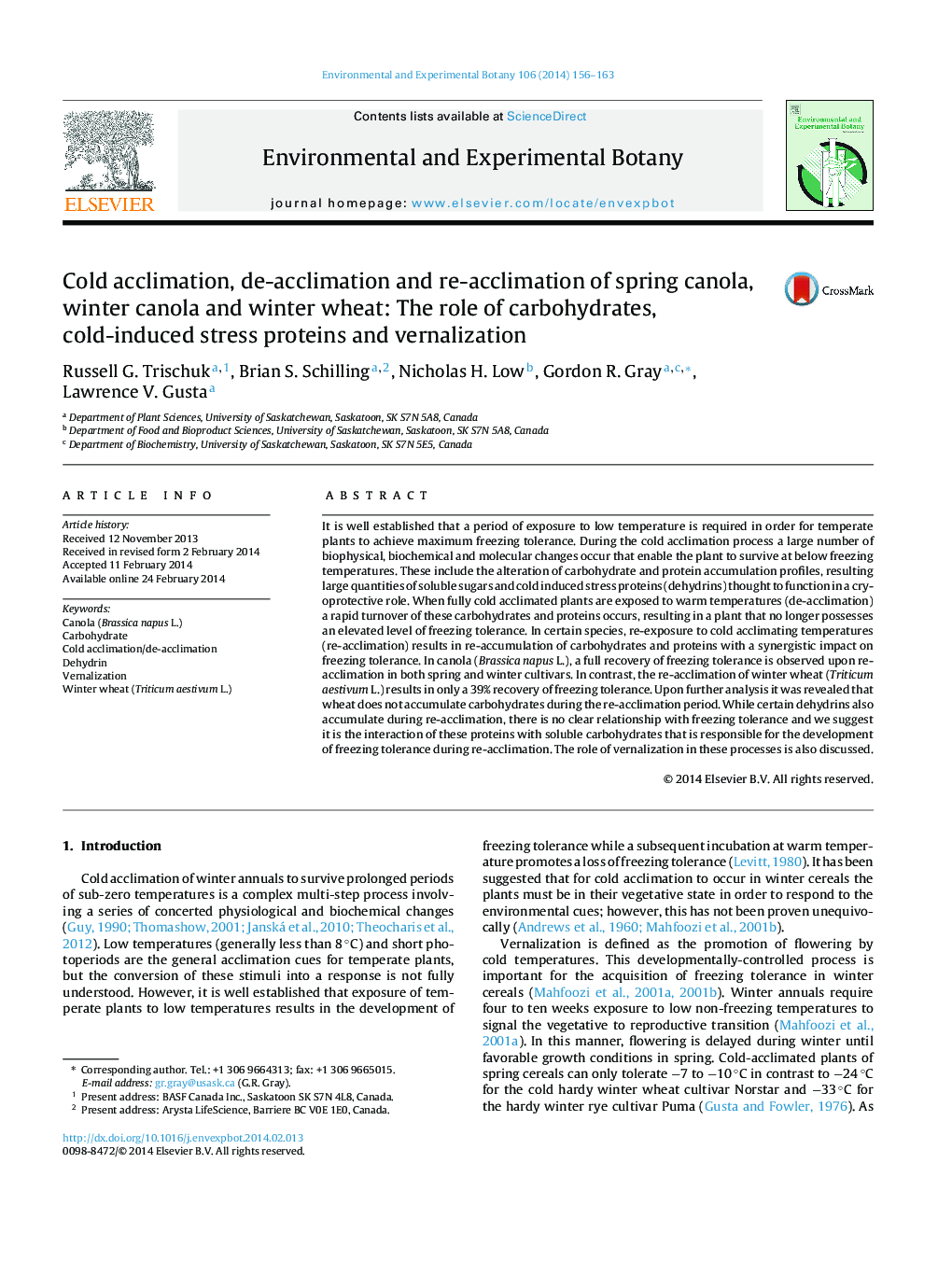| کد مقاله | کد نشریه | سال انتشار | مقاله انگلیسی | نسخه تمام متن |
|---|---|---|---|---|
| 6388884 | 1628071 | 2014 | 8 صفحه PDF | دانلود رایگان |
- Canola fully recovers freezing tolerance upon re-acclimation.
- Spring and winter cultivars respond similarly despite vernalization requirements.
- Recovery of freezing tolerance requires soluble carbohydrate accumulation.
- No positive correlation between dehydrins and freezing tolerance exists.
- Interactions of dehydrins with carbohydrates is suggested as an important factor.
It is well established that a period of exposure to low temperature is required in order for temperate plants to achieve maximum freezing tolerance. During the cold acclimation process a large number of biophysical, biochemical and molecular changes occur that enable the plant to survive at below freezing temperatures. These include the alteration of carbohydrate and protein accumulation profiles, resulting large quantities of soluble sugars and cold induced stress proteins (dehydrins) thought to function in a cryoprotective role. When fully cold acclimated plants are exposed to warm temperatures (de-acclimation) a rapid turnover of these carbohydrates and proteins occurs, resulting in a plant that no longer possesses an elevated level of freezing tolerance. In certain species, re-exposure to cold acclimating temperatures (re-acclimation) results in re-accumulation of carbohydrates and proteins with a synergistic impact on freezing tolerance. In canola (Brassica napus L.), a full recovery of freezing tolerance is observed upon re-acclimation in both spring and winter cultivars. In contrast, the re-acclimation of winter wheat (Triticum aestivum L.) results in only a 39% recovery of freezing tolerance. Upon further analysis it was revealed that wheat does not accumulate carbohydrates during the re-acclimation period. While certain dehydrins also accumulate during re-acclimation, there is no clear relationship with freezing tolerance and we suggest it is the interaction of these proteins with soluble carbohydrates that is responsible for the development of freezing tolerance during re-acclimation. The role of vernalization in these processes is also discussed.
Journal: Environmental and Experimental Botany - Volume 106, October 2014, Pages 156-163
